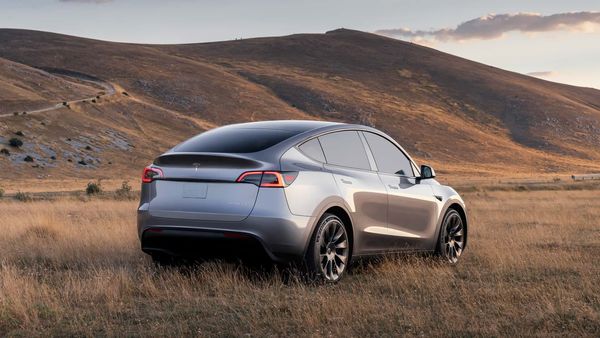
When I was growing up, the idea of getting your driver's license and your very own car when turning 16 or 17 was an aspirational fantasy that was etched into our heads by the lived experiences of our older siblings and by the characters on TV shows we watched at the time.
In essence, getting your license meant that you could go anywhere, do anything, and have some sense of autonomy—granted, we had to be home by 11 p.m.
💰💸 Don't miss the move: Subscribe to TheStreet's free daily newsletter 💰💸
But as we venture further into a more digital world, mobility has expanded past cars and the need to actually drive them. The same year I entered high school, Uber expanded its operations into my home state of New Jersey, virtually eliminating the need for freshmen to bum rides off seniors.
Related: Jaguar designers had a big problem with its controversial rebrand
In a new study, Deloitte found that such advancements in mobility may be driving young adults worldwide to adopt something beyond the traditional means of car ownership to get around.

Young people don't want to own cars, says Deloitte
In their 2025 Global Automotive Consumer Study, the boffins at Deloitte surveyed 4,240 young adults between the ages of 18 and 34 years old from various regions around the world about their transportation preferences.
Among the insights that the firm found, over half of the youngins surveyed—who hail from India, China, Southeast Asia, South Korea, Japan, Germany, the United Kingdom, and the U.S.—were open to giving up owning their own cars in favor of 'mobility-as-a-service' (MaaS) solutions.
The MaaS Alliance defines MaaS as a "single, comprehensive, and on-demand mobility service" that "integrates various forms of transport and transport-related services;" not limited to public transportation, ridesharing, or bikesharing.
More Automotive:
- Carvana under fire: Research report claims turnaround is a "mirage"
- Trump's trade policies may ruin this emerging new car segment
- Frugal motorists are giving lube and tire shops a tough fight
As per their numbers, 2,121 individuals out of the 4,240 total respondents were open to giving up private vehicles if MaaS services were more widely available; however, the numbers do fluctuate when broken down by each individual region.
Of the 286 young Americans who responded to the survey, 44% said they'd give up the keys for MaaS solutions, which falls somewhere down the middle between the eight regions represented. The most car-loyal young people came from the land of BMW and Mercedes: Germany, where 35% say they'd give up their cars for alternative transport solutions.
Not far behind are young people from the U.K. and South Korea, where 37% said they'd adopt appropriate MaaS solutions if offered. At the other end of the spectrum, the most car-disloyal young people came from India, where 70% of young adults felt perfectly fine about ditching their wheels.
Related: Most Americans aren't on board with this proposed auto policy
Cars are expensive, and people pay the price.
In the comments section of a post on Reddit discussing these findings, users are quick to blame this phenomenon on familiar tropes about the younger generation, including the idea that "young people spend too much time on the Internet."
"The internet has made the idea of physical travel less appealing. Strange to think of, but a lot of these kids are chronically online," Reddit user u/Big_Foot_9695 said. They don't need to drive to a buddies house, they can just sit on Discord all night. Honestly the same goes for remote work too."
Despite the sense of freedom that owning a car affords people, the truth is that cars are very expensive. According to the latest figures by Kelley Blue Book and Cox Automotive, the average price paid for a new car in December 2024 was $49,740, 1.3% higher than the same period a year prior.
To afford such cars, people are signing loans that would send Dave Ramsay and Caleb Hammer into a rage. According to Edmunds, the average new-car loan was $42,113 in Q4 2024, with APRs reaching 6.8% and 18.9% of buyers taking on monthly payments topping $1,000 or more.
Deloitte says car subscriptions are popular amongst young people
None of that is cheap. Tack on the cost of insurance, maintenance, gas and charging and it's no wonder why many opt for the bus or train instead. However, Deloitte also gave insight into a sort of "pseudo car ownership."
In their findings, 44% of young Americans said they would give up car ownership in favor of car subscriptions, an alternative model offered by manufacturers that offers a limited amount of miles, insurance, roadside assistance, and maintenance for a flat fee.
The only caveat of this model is that currently, the only automaker that offers this sort of subscription service is the German sports car manufacturer Porsche, whose service starts at a hefty $1,800 per month.
Related: Veteran fund manager issues dire S&P 500 warning for 2025







